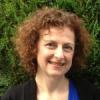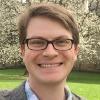History and Philosophy of Science
Please set your timezone at https://www.chstm.org/user
Consortium Respectful Behavior Policy
Participants at Consortium activities will treat each other with respect and consideration to create a collegial, inclusive, and professional environment that is free from any form of discrimination, harassment, or retaliation.
Participants will avoid any inappropriate actions or statements based on individual characteristics such as age, race, religion, ethnicity, sexual orientation, gender identity, gender expression, marital status, nationality, political affiliation, ability status, educational background, or any other characteristic protected by law. Disruptive or harassing behavior of any kind will not be tolerated. Harassment includes but is not limited to inappropriate or intimidating behavior and language, unwelcome jokes or comments, unwanted touching or attention, offensive images, photography without permission, and stalking.
Participants may send reports or concerns about violations of this policy to conduct@chstm.org.
Upcoming Meetings
There are no currently scheduled upcoming events.
Past Meetings
-
December 12, 2018
We will be reading Anya Plutynski's Explaining Cancer: Finding Order in Disorder (Oxford, 2018) Chapters 5, 6, and Conclusion. Anya Plutynski will Skype in for the discussion.
-
November 14, 2018
We will be reading Anya Plutynski's Explaining Cancer: Finding Order in Disorder (Oxford, 2018) Chapters 3 and 4. Ashley Inglehart will open the discussion.
-
October 10, 2018
We will be discussing Anya Plutynski's Explaining Cancer: Finding Order in Disorder (Oxford, 2018), Introduction and Chapters 1 and 2. Nabeel Hamid will open the discussion.
-
April 11, 2018
This Spring, we read Lena Soler, Emiliano Trizio, and Andrew Pickering, eds., Science as it Could Have Been (Pittsburgh, 2015). For our April 11 meeting, please read Chapters 12 ("The Science of Mind as It Could Have Been, by Bitbol and Petitmengen) and 14 ("On the Plurality of (Theoretical) World," by Levy-LeBlond). Iaan Reynolds (Villanova) will introduce ch. 12, and Noel Swanson (Delaware) ch. 14.
-
March 14, 2018
This Spring, we read Lena Soler, Emiliano Trizio, and Andrew Pickering, eds., Science as it Could Have Been (Pittsburgh, 2015). For our March 14 meeting, please read Chapters 3, 4, and 6, by Pickering, Trizio, and Collins respectively. Tawrin Baker (UPenn) introduced the readings.
-
February 14, 2018
This Spring we will be reading:
Lena Soler, Emiliano Trizio, and Andrew Pickering, eds., Science as it Could
Have Been (Pittsburgh, 2015). For the first meeting, please read Chapters 1 and 2.
Noel Swanson (U of Delaware) lead the discussion.
-
December 13, 2017
Chapters 9 and 10 and Conclusion of About Method
Jutta Schickore (Indiana) joined the group for the final discussion of her book.
-
November 8, 2017
Chapters 5-8 of About Method. The discussion was opened by Tawrin Baker (UPenn)
-
October 11, 2017
Introduction and Chapters 1-4 of Jutta Schickore's About Method: Experimenters, Snake Venom, and the History of Writing Scientifically (Chicago, 2017). The discussion was opened by Miriam Solomon.
-
April 19, 2017
Reading: Creating Consilience, chs. 19, Sugiyama and Sugyama, "Monster Stories," and 22, "Language, Cognition, and Literature." The "Afterword" is also recommended. Devin Curry opened the discussion.
Group Conveners
-

Miriam Solomon
Miriam Solomon is Professor of Philosophy and Department Chair in the Department of Philosophy at Temple University. Her research interests are in philosophy of science, philosophy of medicine, history of science, epistemology, gender and science and biomedical ethics.
-

Noel Swanson
Noel Swanson is an associate professor in the philosophy department at the University of Delaware, working on the philosophy of physics, science, and logic. His current research focuses on the conceptual foundations of quantum field theory.